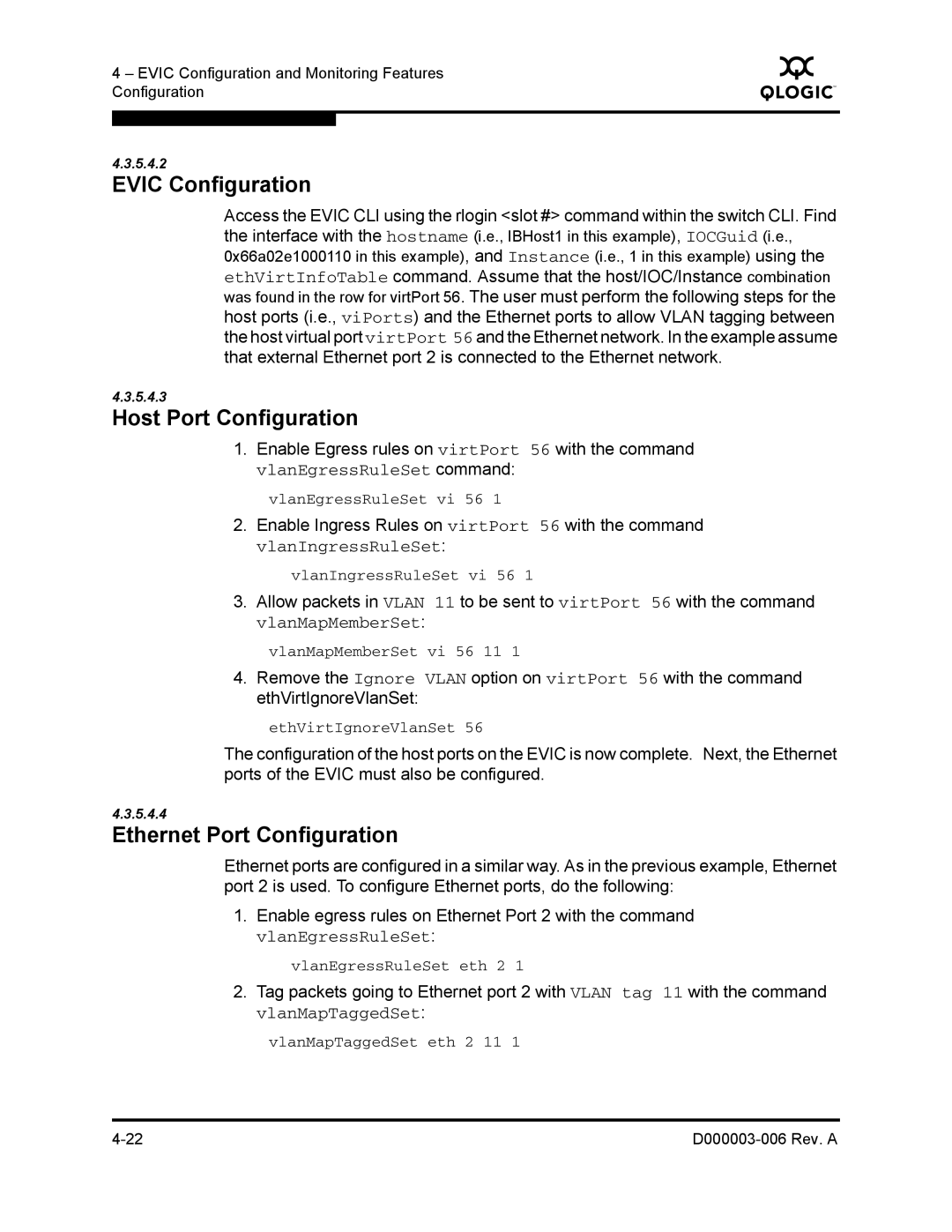
4 – EVIC Configuration and Monitoring Features Configuration
Q
4.3.5.4.2
EVIC Configuration
Access the EVIC CLI using the rlogin <slot #> command within the switch CLI. Find the interface with the hostname (i.e., IBHost1 in this example), IOCGuid (i.e., 0x66a02e1000110 in this example), and Instance (i.e., 1 in this example) using the ethVirtInfoTable command. Assume that the host/IOC/Instance combination was found in the row for virtPort 56. The user must perform the following steps for the host ports (i.e., viPorts) and the Ethernet ports to allow VLAN tagging between the host virtual port virtPort 56 and the Ethernet network. In the example assume that external Ethernet port 2 is connected to the Ethernet network.
4.3.5.4.3
Host Port Configuration
1.Enable Egress rules on virtPort 56 with the command vlanEgressRuleSet command:
vlanEgressRuleSet vi 56 1
2.Enable Ingress Rules on virtPort 56 with the command vlanIngressRuleSet:
vlanIngressRuleSet vi 56 1
3.Allow packets in VLAN 11 to be sent to virtPort 56 with the command vlanMapMemberSet:
vlanMapMemberSet vi 56 11 1
4.Remove the Ignore VLAN option on virtPort 56 with the command ethVirtIgnoreVlanSet:
ethVirtIgnoreVlanSet 56
The configuration of the host ports on the EVIC is now complete. Next, the Ethernet ports of the EVIC must also be configured.
4.3.5.4.4
Ethernet Port Configuration
Ethernet ports are configured in a similar way. As in the previous example, Ethernet port 2 is used. To configure Ethernet ports, do the following:
1.Enable egress rules on Ethernet Port 2 with the command vlanEgressRuleSet:
vlanEgressRuleSet eth 2 1
2.Tag packets going to Ethernet port 2 with VLAN tag 11 with the command vlanMapTaggedSet:
vlanMapTaggedSet eth 2 11 1
|
